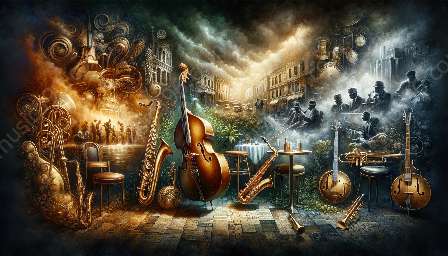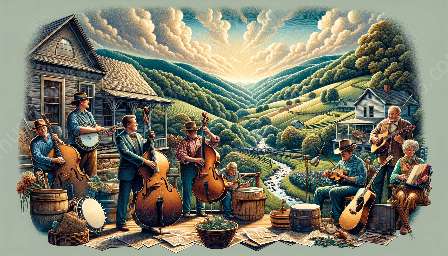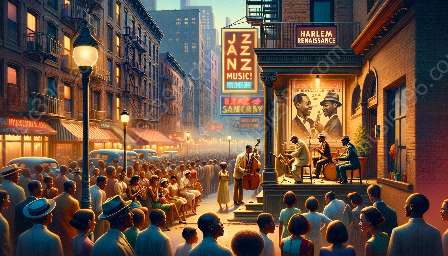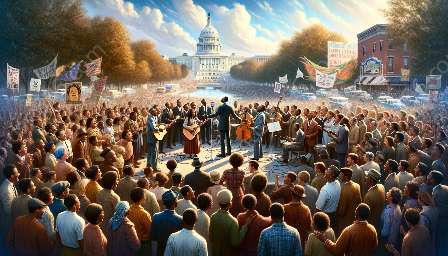Blues music is deeply rooted in American history, and one city that has made an indelible mark on the genre is Chicago. The city's vibrant culture and unique musical heritage have significantly contributed to the rich tapestry of blues music history. This topic cluster seeks to explore Chicago's pivotal role in the evolution of blues music, highlighting its influence, key players, and lasting impact on the history of music.
History of Blues Music
Before delving into Chicago's contributions to blues music, it is essential to understand the broader history of the genre. Blues music originated from the African American experience, born out of the hardships and struggles faced by enslaved individuals in the American South. The music served as a form of expression, a way to share stories, and a means of finding solace in difficult times.
Early blues music was characterized by its raw emotion, soulful vocals, and simple instrumentation. It often dealt with themes of love, loss, and adversity, all resonating deeply with its audience. As blues music continued to evolve, it made its way northward, eventually finding a new home and thriving in the urban landscape of Chicago.
Chicago's Influence on Blues Music
Chicago played a crucial role in shaping the modern sound of blues music. As African American communities migrated from the rural South to urban centers during the Great Migration, they brought with them the musical traditions of the blues. Chicago became a melting pot of creativity and cultural exchange, providing a fertile ground for the genre to flourish.
One of the most significant contributions of Chicago to blues music was the electrification of the genre. In the 1940s, pioneering blues musicians in Chicago began incorporating electric amplification into their music, leading to a robust, amplified sound that would define the Chicago blues style. This shift marked a turning point in the history of blues music, influencing countless musicians and shaping the future of the genre.
Another defining aspect of Chicago's influence on blues music was the establishment of iconic blues clubs and venues. The city became home to legendary nightspots such as Chess Records, Theresa's Lounge, and the famed Maxwell Street. These venues not only provided a platform for blues musicians to showcase their talent but also served as gathering places for blues enthusiasts, creating a vibrant community around the music.
Key Players in Chicago Blues
Chicago was home to a multitude of influential blues artists who left an indelible mark on the genre. Prominent figures such as Muddy Waters, Howlin' Wolf, and Willie Dixon were instrumental in shaping the Chicago blues sound and gaining widespread recognition for the genre. Their contributions not only propelled blues music to new heights but also paved the way for future generations of musicians.
Muddy Waters, often referred to as the




































